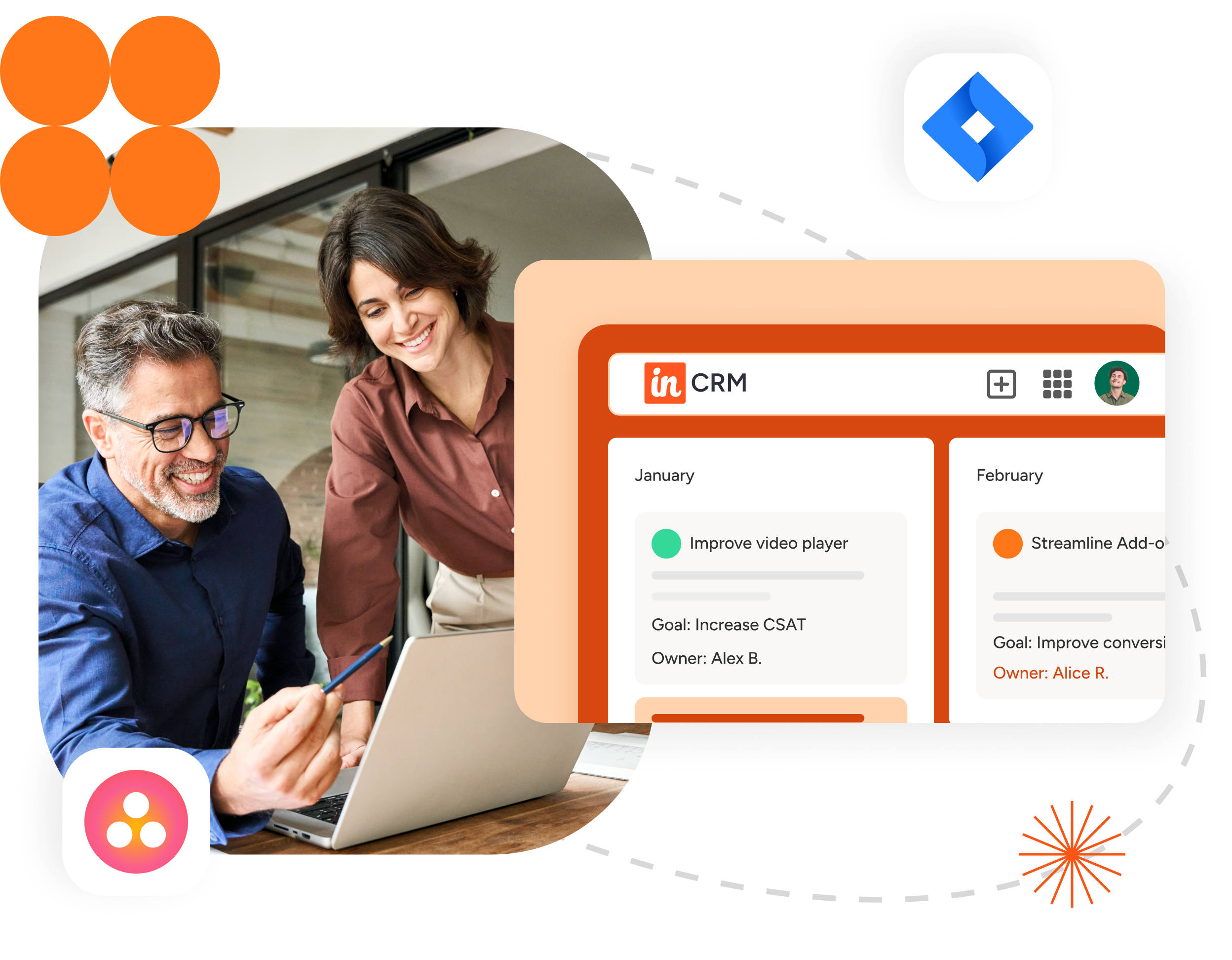Customer feedback and insights:
- A CRM captures customer interactions and feedback, providing the product development team with valuable insights into customer preferences, pain points, and feature requests.
- This customer-centric data helps in shaping product roadmaps and prioritizing features based on real user needs.
Market research and trends:
- CRMs can be integrated with external sources to gather market trends, competitor information, and industry insights.
- The product development team can use this information to stay informed about market demands, technological advancements, and emerging trends, guiding their decisions and innovation strategies.
- CRMs can help track the rollout of products
Customer segmentation for targeted development:
- CRM segmentation capabilities enable the product development team to categorize customers based on usage patterns, preferences, and demographics.
- This segmentation allows for targeted development, tailoring features and updates to specific customer segments, thereby improving user satisfaction.
Improved communication and collaboration:
- CRMs facilitate communication and collaboration between different teams within the organization, including product development, marketing, and customer support.
- Those with product management skills will quickly see the value in the CRM.
Shared information and collaborative tools help ensure that everyone is on the same page regarding product updates, customer feedback, and development timelines.
Bug and issue tracking:
- CRMs can be used to log and track customer-reported bugs and issues. This streamlines the process of identifying, prioritizing, and addressing problems in the product.
- The product development team can efficiently manage bug fixes and updates based on the severity and impact on customer experience.
User adoption and engagement metrics:
- A CRM provides metrics on user adoption and engagement, allowing the product development team to assess how customers are interacting with the product.
- These metrics help in refining user interfaces, optimizing features, and improving overall user experience.
Integration with productivity tools:
- Many CRMs offer integration capabilities with various productivity tools, project management platforms, and development environments.
- Seamless integration streamlines the workflow of the product development team, enabling them to work more efficiently and collaboratively.
Product lifecycle management:
- CRMs can assist in managing the entire product lifecycle, from ideation and development to launch and post-launch support.
- This end-to-end visibility helps in creating a cohesive strategy for continuous improvement and innovation.
Customer retention and loyalty:
- By leveraging CRM data, the product development team can focus on creating features that contribute to customer retention and loyalty.
- Understanding customer preferences and addressing their needs through product updates helps build long-term relationships.
In conclusion, a CRM can significantly benefit the product development team by providing customer insights, supporting market research, improving communication, aiding in targeted development, and facilitating efficient bug tracking and issue resolution. Integrating CRM tools into the product development process promotes a customer-centric approach and helps create products that align with user expectations and market demands.


